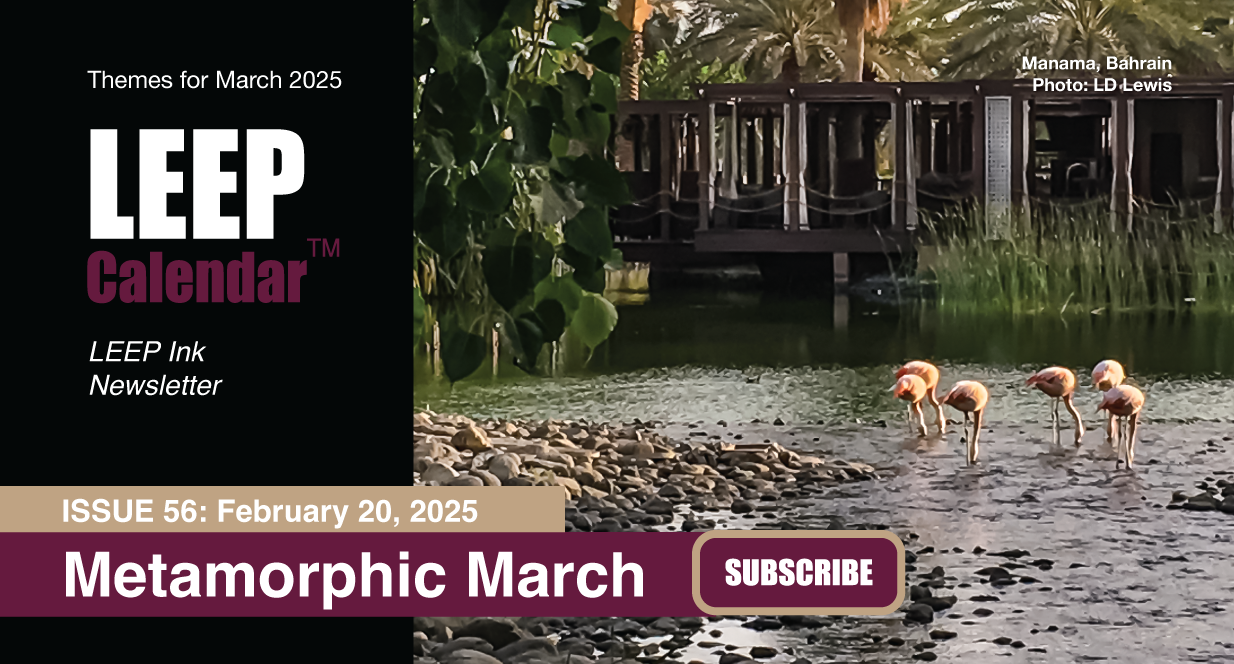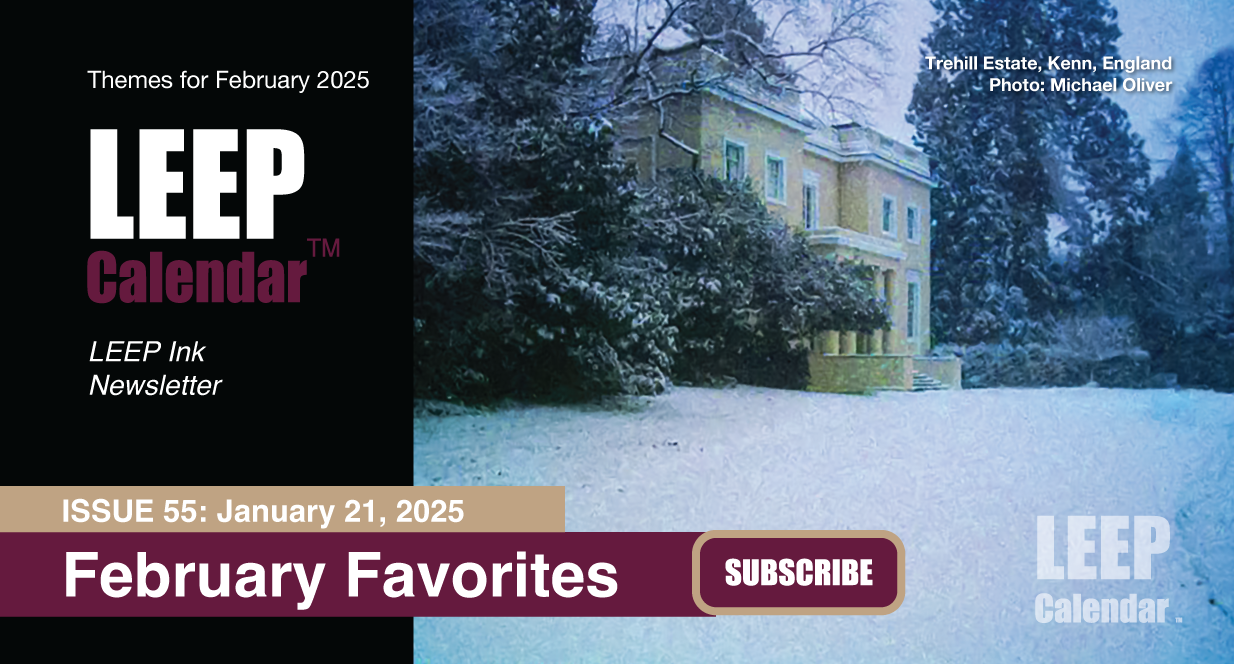 AD
AD
Country
- Africa
- Alcohol, Tobacco & Drugs
- Animals, Fish, Insects & Birds
- Anniversaries
- Australia
- Books
- Brazil & S.America
- Buddhism
Category
- Afghanistan, AF
- Aland Island, AX
- Albania, AL
- Algeria, DZ
- American, Samoa, AS
- Andarra, AD
- Angola, AO
- Anguilla, Al
Event Type
- Daily
- Weekly
- Annual
- Recurring
Duration
- All
- 1 Day
- 2 Day
- 3 Day
- 4 Day
- 5 Day
- 6 Day
Event Type
- Daily
- weekly
- Annual
- Recurring
Event Type
- Daily
- weekly
- Annual
- Recurring
Today is: May 03
Auctioneers Day, Ntl
BaconFest (US-IA)
Bike Shop Day, Ntl. (UK)
Black Pound Day (UK)
Chocolate Custard Day, Ntl.
Comic Book Day (Free), Ntl.
Constitution Day (PL)(1791)
Constitution Memorial Day (JP)(1947)
Day of the Holy Cross (MX)
Dog Park Day, Ntl.
Ely Eel Festival (UK)
Explosive Ordinance Disposal Day
Fitness Day, Ntl.
Ganga Saptami (H)
Garden Meditation Day
Green Up Day (US-VT)
Iris Festival (BE)
Kentucky Derby (US-KY)
Learn to Ride a Bike Day
Leopard Day, World
Lowcountry Shrimp Festival, South Carolina
Lumpy Rug Day
Press Freedom Day, World
Radio Day, Public (1971)
Raspberry Popover Day, Ntl.
Scrapbooking Day, Ntl.
Shoes Day, Two Different Colored, Ntl.
Space Day
Specially-abled Pets Day, Ntl.
Air Quality Awareness Week
Anxiety and Depression Awareness Week, Ntl.
Be Kind to Animals Week
Black Mothers Bailout Week
Children’s Mental Health Awareness Week (US/CA)
Computer, Choose Privacy Week
Drinking Water Week
Emergency Preparedness Week, Ntl. (CA)
Facilities Managers Week, World FM
Family Week, Ntl
Galveston Historic Home Tour (US-TX)
Gardening Week, Ntl. (UK)
Golden Week (JP)
Goodwill Industries Week (US/CA)
Hedgehog Awareness Week (UK)
Hug Holiday Week, Ntl.
Hurricane Preparedness Week, Ntl.
Maternal Mental Health Week
Motherless Daughters Awareness Week (AU)
Multiple Sclerosis Week (UK)
Music Week, Ntl.
Neuropathy Awareness Week, Peripheral, Ntl.
Perinatal Mental Health Awareness Week (NZ)
Pet Week, Ntl.
Physical Education and Sports Week, Ntl.
Public Service Recognition Week
References Week, Update Your
Stewardship Week, Ntl.
Summer Safety Week, Ntl.(CA)
Time for a Cuppa (UK)
Travel and Tourism Week, Ntl.
65 Roses Month (AU)
ALS Awareness Month
Amaranth Month
Arthritis Awareness Month, Ntl.
Asian and Pacific Islander American Heritage Month
Asparagus Month, Ntl.
Asthma and Allergy Awareness Month
Barbecue Month, Ntl.
Bike and Bicycle Safety Month
Blood Pressure Month, Ntl.
Borderline Personality Disorder Awareness Month
Brain Tumor Action Month
Building Safety Month, Ntl.
Cancer Research Month, Ntl.
Car-Keeping Month, Ntl. Good
Celiac Awareness Month (CA)
Cheese Month, American
Chocolate Custard Month
Civility Awareness Month, Global
Civility Awareness Month, Intl.
Civility Awareness Month, Intl.
Clap 4 Health Month
Coeliac Awareness Month (UK)
College Students with Disabilities Recognition Month
Condiment Month, Ntl.
Condiment Month, Ntl.
Craft and Design Month (2011)(UK)
Crohn's and Colitis Awareness Month (AU)
Cystic Fibrosis Month
Dhul-Qa'dah (M)
Digestive Diseases Awareness Month, Ntl.
Egg Month
Electrical Safety Month, Ntl.
Employee Health and Fitness Month, Global
Family Wellness Month
Fibromyalgia Education and Awareness Month
Food Allergy Action Month
Foster Care Month, Ntl.
Garden Month, Gifts from the
Gardening for Wildlife Month
Get Caught Reading Month
Haitian Heritage Month
Hamburger Month, Ntl.
Heal the Children Month
Healthy Vision Month (US)
Hearing and Speech Month, Better
Hemochromatosis Awareness Month (CA)
Hepatitis Awareness Month, Ntl.
Hereditary Hemochromatosis Genetic Screening and Awareness Month, Ntl.
High Blood Pressure Education Month, Ntl.
Huntington's Disease Awareness Month (CA)
Huntington's Disease Awareness Month
Inventors Month, Ntl.
Iyyar (J)
Jewish-American Heritage Month
Lung Cancer Awareness Month (AU)
Lupus Awareness Month, Ntl.
Lyme Disease Awareness Month
ME/CFS Awareness Month (US-CA)
Meat Free May (UK)
Medication Dependence Prevention Month (AU)
Meditation Month, Ntl.
Mediterranean Diet Month, Intl.
Mental Health Month, Ntl.
Microchip Your Pet Month (US)
Military Appreciation Month, Ntl.
Motorcycle Safety Month (US/CA), Ntl.
Mystery Month
Neurofibromatosis Awareness Month, Ntl.
Older Americans Month
Osteoporosis Prevention Month, Ntl. (US)
Our Lady of Peace and Good Voyage, Feast of (PH)
Pediatric Stroke Awareness Month, Ntl.
Pet Cancer Awareness Month, Ntl.
Pet Month, Ntl.
Photography Month, Ntl.
Physical Fitness and Sports Month, Ntl.
Physiotherapy Month, Ntl. (CA)
Posture Month
Preservation Month, Ntl.
REACT Month
Read to Your Baby Bump Month, Ntl.
Recommitment Month, Ntl.
Responsible Animal Guardian Month
Running of the Balls (US-TN)
Salad Month, Ntl.
Santacruzan, Flores de Mayo (PH)
Service Dog Eye Examination Month, Ntl.
Sexual Assault Awareness and Prevention Month, Ntl.
Skin Cancer Detection and Prevention Month
Sleep Month, Better
Spiritual Literacy Month
Stroke Awareness Month, Ntl. (US)
Stroke Month, Strike Out
Sweet Vidalia Onion Month, Ntl.
Tavern Month, Ntl.
Teen Self-Esteem Month, Ntl.
Thyroid Awareness Month (AU)
Tooth Month, Save Your
Toxic Encephalopathy and Chemical Injury Awareness Month, Ntl.
Trade Month, World
Triple Crown
Tuberous Sclerosis Awareness Month
Ultraviolet (UV) Awareness Month
Urgent Care Awareness Month, Ntl.
Vaisakh (S)
Vaisakh (S)
Vaisakha (H)
Victorious Woman Month Intl.
Vinegar Month
Vision Health Month (CA)
Walk in the Woods Month (UK)
Walking Month, Ntl. (US/UK)
Wetlands Month, American.
Women's Health Care Month, Ntl.
World Expo 2025 (JP)
Young Achiever's Month
Youth Services Month, Global
Youth Traffic Safety Month, Global
LEEP Calendar
Scroll to explore events active on this date.
LEEP INK FEATURES

Events in April 2025
Spring has sprung in the north, and the first hints of Autumn are on the horizon in the south. April is the month spring (or fall) gets underway, and it is filled with religious celebrations, including the Mu...

Metamorphic March: Trends and events in March 2025
Welcome to Spring or Autumn. This is a transitional month with something for everyone. Internationally, it is Women's History Month, focusing on the achievements, needs, and challenges that women ...

February Favorites
The world steps into the second month of 2025 with hope and trepidation. The United States has a new administration. Canada is finding its way to a new administration. Germany and several other European nations...
About the United Kingdom's Global Scouse Day
United Kingdom & Ireland
Ends: Feb 28, 2025
DESCRIPTION:
Scouse Day celebrates the version of English spoken in and around Liverpool. It is distinct from both standard British English and American English in several ways, including its vocabulary, pronunciation, and intonation. The Scouse accent is more sing-songy than most other English accents, with a broader pitch range and a stronger emphasis on certain syllables.
Pronunciation—Scouse is known for its unique pronunciation. For instance, the 'k' sound in words like 'book' and 'cook' is often pronounced like an 'x,' making it sound more like 'boo-x' or 'coo-x.' The 't' in the middle of words can often be glottal, so 'butter' sounds more like 'bu'er'. There's also a distinctive way of pronouncing the letter 'r' at the end of words, which is more pronounced than in standard British English but less so than in most American dialects.
Vocabulary and Phraseology—Scouse uses regional slang and terms. For example, 'boss' often means 'great' or 'fantastic,' and 'sound' can mean 'okay' or 'agreeable.' Another example is the use of 'like' at the end of sentences, a common feature in Scouse, serving as a discourse particle.
Comparison to American English—Compared to American English, Scouse has a much faster rhythm and different vowel sounds. For example, the vowel sound in 'cat' is more closed in Scouse than in most American accents. Vocabulary differs, too.
Examples of Scouse pronunciation and phraseology:
"I'm going to the shop" could be pronounced as "I'm goin' to the shop, like" in Scouse, with a noticeable glottal stop replacing the 'g' in 'going' and a trailing 'like' at the end.
The word 'about' might sound more like 'abowt' in Scouse.
A phrase like "That's great" might be "That's boss, that" in Scouse.
Scouse is a vibrant and distinct dialect with its own rules and characteristics, making it notably different from both standard British English and American English.
VIDEOS
SUPPORTING DOCUMENTS
Currently, this event does not have supporting documents.
ADDITIONAL IMAGES
Currently, this event does not have supporting images.
Where would you like to go now?
 AD
AD
By using this site. You are agreeing to use of cookies. Learn more in our Privacy Policy
/footer-logo.svg)
LEGAL: Excerpts and links may be used, provided that full and clear attribution is given to Jubilee LLC and LEEPCalendar.com, with appropriate and specific direction to the original content (Page URL). Additional documents, embedded videos and additional image rights retained by their creators and are provided to increase understanding of the event or topic.
Jubilee LLC reserves the right to accept or reject inclusion of events in this calendar. The appearance of an event in LEEP Calendar does not imply endorsement of the event, nor the organization championing the event by Jubilee LLC, its stakeholders, customers or subsidiaries. All dates, contact information, URLs, addresses, and information relating to any event, promotion or holiday are subject to change without notice and should be treated as estimated. Jubilee LLC, our stakeholders, customers and subsidiaries cannot warrant accuracy. Users of this application are solely responsible for verifying actual event date with organizers and additional sources prior to committing resources, financial, human or otherwise.


